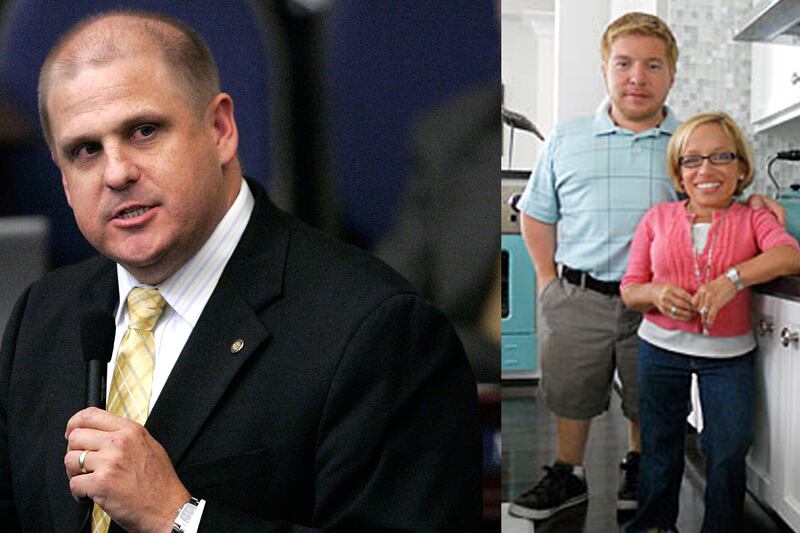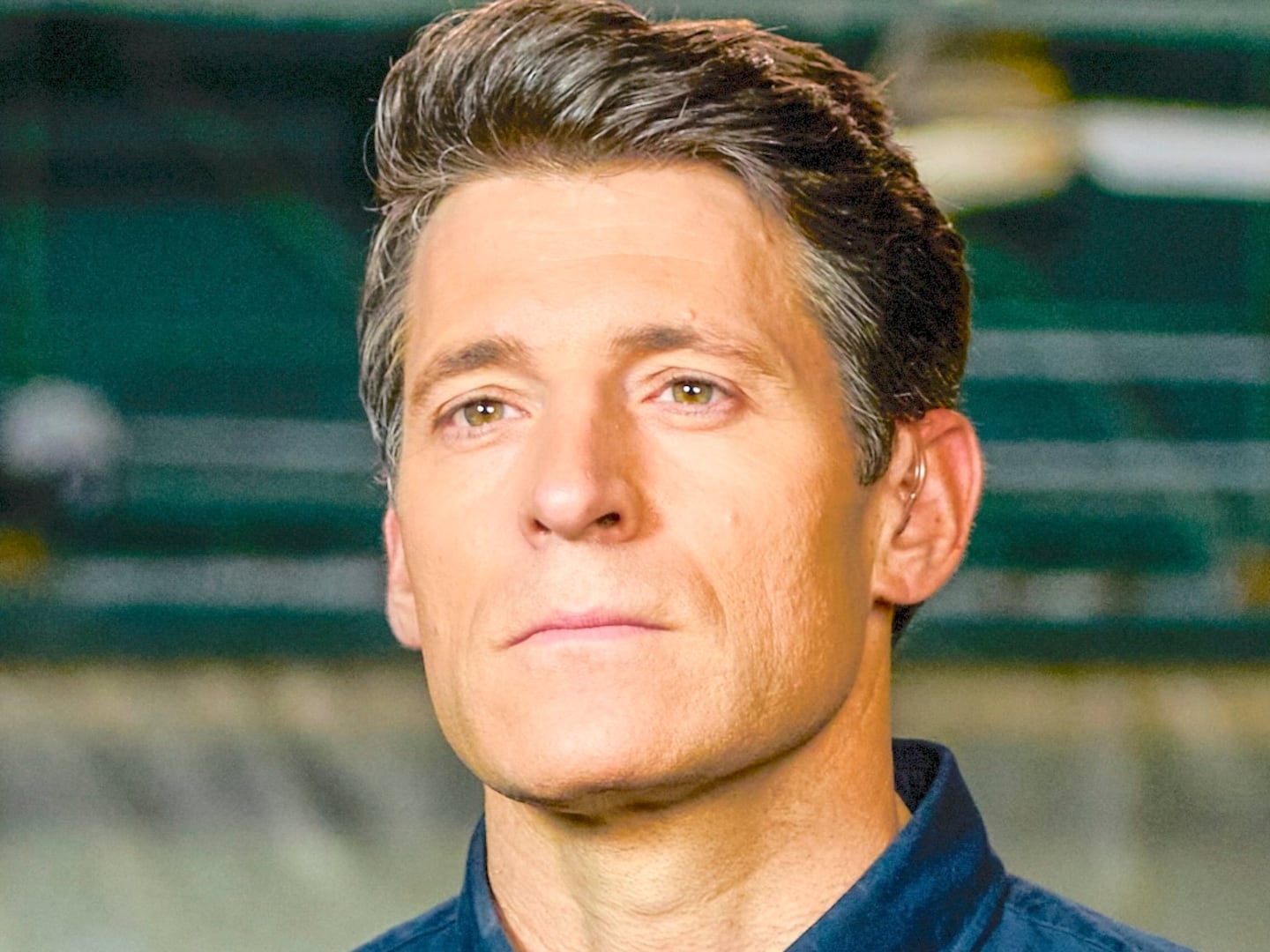Imagine walking into a bar and as you sit down to order a drink, you notice tonight's entertainment on the tabletop beer menu: Dwarf-tossing, starring Joe the Midget, 10-Midnight, 2 drink minimum.
I know that some of you are appalled, and that some of you snickered. The folks that snicker are the same people that I’ve had to combat all my life.
My name is Bill Klein. I am 37 years old and stand four feet tall. My wife, Jennifer Arnold, and I appear on a reality series on TLC called The Little Couple. For nearly three years, we have been propagating the message that people with dwarfism are no different from average-height people. My wife is a successful physician at Baylor College of Medicine and I own a few small businesses in New York and Texas.
We are no strangers to being bullied. As two people that stand no taller than a grade-school child, it is hard for people to avoid noticing us—and harder still for some to keep from bullying us.
There is a proposal coming from the office of Ritch Workman (R-FL) to repeal a Florida law that currently bans the activity of "dwarf-tossing." It might sound absurd, but this is the new jobs platform that Workman is putting forth. Make no mistake: this is bullying.
For those of you that don’t know, dwarf tossing is an activity (if you can call it that) wherein a person with dwarfism voluntarily subjects themselves to being the object or equipment in a contest where he is literally thrown. The activity is nearly exclusive to a bar setting, and the participants are normally intoxicated. Typically, the dwarf will wear padded clothing or a Velcro costume. He or she is then thrown onto mattresses or Velcro-covered walls.
In his justification for lifting the ban, Representative Workman said: "I'm on a quest to seek and destroy unnecessary burdens on the freedom and liberties of people. This is an example of Big Brother government. All that it does is prevent dwarfs from getting jobs they would be happy to get in this economy, or any economy. Why would we want to prevent people from getting gainful employment?" In his quest to help people with dwarfism, Workman is attempting to repeal this ban so we (people with dwarfism) can go out and make a buck.
In 1989, Florida enacted a ban on dwarf tossing, but it went further to prohibit any activity involving "exploitation endangering the health, safety and welfare of any person with dwarfism." The first question to ask: is there a need to prohibit the exploitation of people with dwarfism from physical and/or mental anguish? The answer is the same if you were to substitute people with dwarfism with any other group of people—people in wheelchairs, people with learning disabilities, women, gays/lesbians, Hispanics, African-Americans, Jews, etc. YES! Because most average-sized people would be difficult to "toss," there's no need for a ban to protect these other groups. But dwarf tossing does exist, and it’s called assault. It’s also segregating, abusive, and degrading.

Now, a couple of questions to consider after reading his statement. What is the definition of gainful employment? Dwarf tossing is not a sport—no rules or regulations, no conditioning required to participate, a lack of consideration for the welfare of the participants, no medical oversight, no medical insurance, and no future. It is simply a way to attract drunk bullies into a bar where it’s safe to practice their habitual abuse of others. The potential injury to a person with dwarfism means tax payers likely will assume the cost of care thereafter. (Dwarfism is a skeletal dysplasia that from birth includes health issues such as abnormal skeletal development and potential neurologic complications.)
Dwarf tossing does not have the support of the majority of persons with dwarfism living in Florida or the United States. What precedent does this set for states that have yet to rule on the subject? The ban on dwarf tossing was originally instated specifically to protect people from injury (and in this case, from themselves as well.) A repeal means the government has relinquished its duty to protect and serve the people. It can only do more harm. Lastly, what does it say about our country that we as a society endorse the subjugation of persons with dwarfism? Allowing dwarf tossing is a huge step in the wrong direction.
If Representative Workman wanted to serve his constituency well, he would look to create jobs for the masses. He would look to make things like Equal Opportunity Employment and the Americans With Disabilities Act mean more than an acronym employers stamp on their recruitment documents and help-wanted ads. Workman needs to examine where his efforts should be placed, and understand the privilege of being a legislator is to serve the people, to protect those that need protection and to support legislation that makes sense to everyone affected by it. Representative Workman might also consider that moral conduct guides many laws. Furthermore, he should consider that this law was enacted in 1989 because the moral compass in the state of Florida was not pointing in the right direction.
Job growth will not be addressed by removing a ban that protects the welfare and dignity of a population of people. Civil liberties are not put at risk by upholding the ban, but are supported by it. While one little person might seek to be the "participant" in dwarf tossing, many others will continue to be ridiculed, objectified and denied employment due to their association with this sort of behavior. Condoning it hurts our ability as a community to develop worthwhile, life-long careers that bring more than a foggy remembrance of a drunken night at a bar. For a long time, people have wanted to seek "employment" by doing things that are not aligned with our collective moral compass—prostitution and illicit drug sales are a couple of obvious ones. Just because someone wants to make money that way doesn’t mean we should affirm that desire.
People should be free to live their lives the way they choose. However, there is a driving force that separates us from all other creatures on this planet: morality. For the most part, we all understand the difference between right and wrong. Please remind (hopefully soon to be former) Representative Workman of what direction his compass should point.






